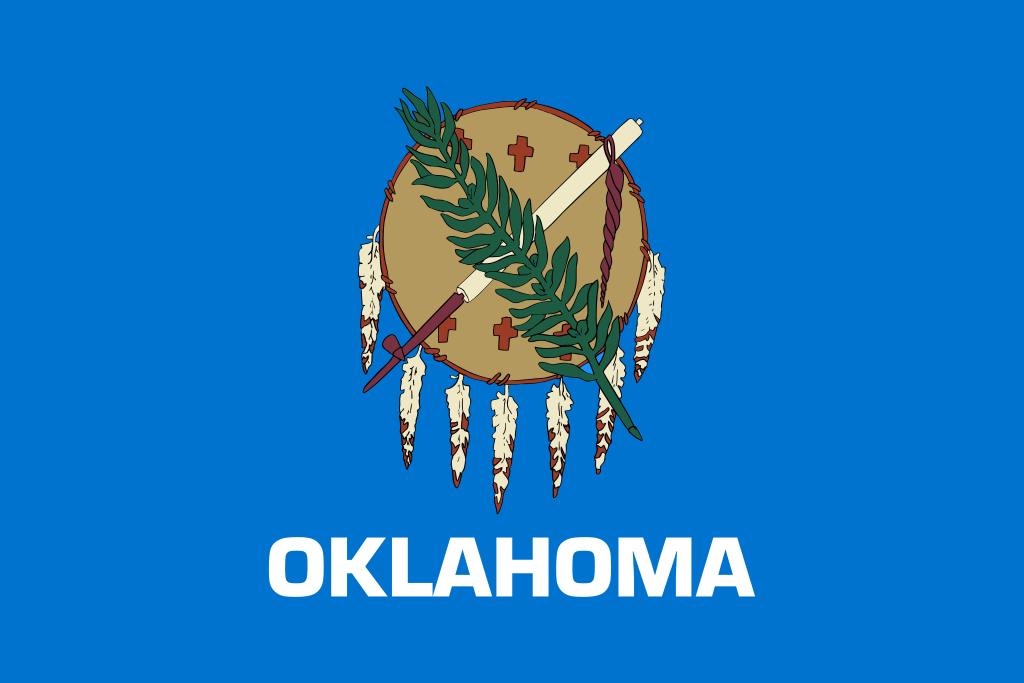Tag: oklahoma
-
Four state legislatures have passed bills ending judicial deference in 2025, most recently Missouri and Oklahoma

What’s the story In the 2025 legislative sessions, Kentucky, Oklahoma, and Texas enacted laws prohibiting judicial deference by state courts to state administrative agencies. In a fourth state, Missouri, the legislature approved a bill and sent it to the governor’s desk. It had not been signed as of June 13. Three states were Republican trifectas.…
-
Oklahoma passes REINS Act, legislative and executive oversight, and judicial nondeference bills

Governor Kevin Stitt (R) signed House Bill 2728, titled Oklahoma’s Regulations from the Executive in Need of Scrutiny (REINS) Act of 2025, on May 21. HB 2728 directs the Legislative Office of Fiscal Transparency (LOFT) to independently review and verify economic impact statements for rules with implementation and compliance costs exceeding $1 million over five…
-
Oklahoma enacts pay-per-signature ban, residency requirement, signature distribution requirement, and funding disclosure rules for ballot initiative petitions

Oklahoma Governor Kevin Stitt (R) signed Senate Bill 1027 (SB 1027) on May 27, enacting changes to the state’s initiative and referendum processes. The bill passed in the Oklahoma State Legislature with all Democrats voting against and all but six Republicans in favor. Oklahoma is one of 26 states with an initiative process. Citizens in…
-
Oklahoma State Legislature advances bill to change process of initiated ballot measures

The Oklahoma House of Representatives again advanced Senate Bill 1027 (SB 1027), a measure that would change the process of placing citizen-initiated amendments and laws on the ballot. SB 1027, which would take effect immediately after its passing, would make three changes to the initiative process in Oklahoma. First, it would implement a distribution requirement…
-
Oklahoma launches effort to oppose corporate DEI

Oklahoma Treasurer Todd Russ (R) announced plans to oppose corporate diversity, equity, and inclusion (DEI) programs through shareholder proposals using its $2 billion Tobacco Settlement Endowment Trust. DEI is typically associated with the social component of ESG. Treasurer Russ has argued corporations should be politically neutral and avoid using corporate money for DEI and ESG…
-
Oklahoma voters have decided on 454 ballot measures since statehood in 1907

Oklahoma’s constitution, adopted in 1907, includes rights for citizens to propose new laws and change existing laws through the initiative and referendum process. Since 1907, Oklahomans have decided on 454 ballot measures placed on the ballot by successful citizen initiatives and the Oklahoma State Legislature. The types of measures decided have included advisory questions (1),…
-
55% of elections in Oklahoma are uncontested

Of 190 regular elections in Oklahoma—105 (55%) are uncontested. An uncontested election is one where the number of candidates on the ballot is less than or equal to the number of seats up for election. Of the 26 states where Ballotpedia is covering every election on Nov. 5, Oklahoma has the 18th highest rate of…
-
Three justices on the Oklahoma Supreme Court and three justices on the Oklahoma Court of Appeals face a retention election

Three of the nine justices on the Oklahoma Supreme Court and three of the five justices on the Oklahoma Court of Criminal Appeals are up for a retention election on November 5, 2024. Oklahoma is one of two states with two courts of last resort. The Oklahoma Supreme Court is the court of last resort…
-
Oklahoma minimum wage increase initiative will be decided on June 16, 2026

Oklahoma Gov. Kevin Stitt (R) issued an executive order placing State Question 832, the minimum wage increase initiative, on the June 16, 2026, primary election ballot. State Question 832 State Question 832, which was filed for the Nov. 2024 ballot, was designed to increase the state minimum wage to $9 per hour in 2025, $10.50…

